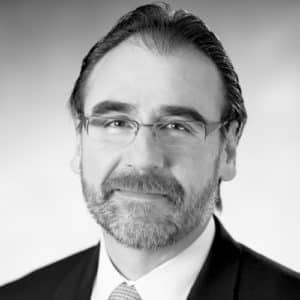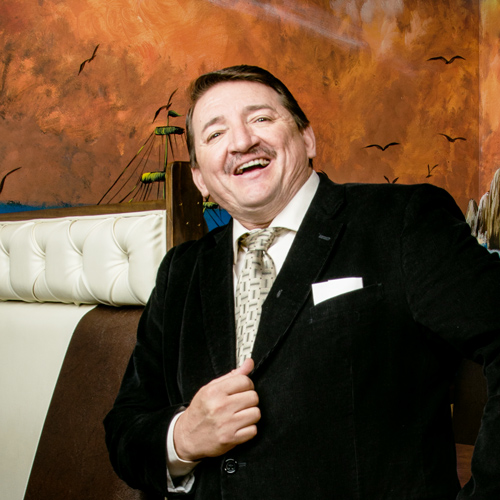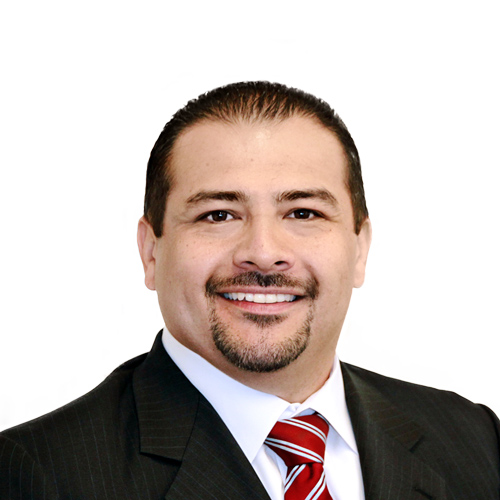
After years leading complex IT operations, Mexico-born Alejandro Martinez Galindo was recruited in 2016 to head up an epic technology initiative with Walgreens Boots Alliance (WBA). Here, he highlights how a global mind-set and a diverse team helped him rise to the Walgreens digital challenge. His secret sauce? Amid high pressure and high stakes, his instinct takes over: “part analysis—but all Latino passion.”
Your job sounds huge. What does global IT transformation entail?
It is massive. We’re transforming the digital business and revamping our IT ecosystem to better serve our customers. We’re deploying new technology across pharmacy, retail, wholesale, and our support functions. It’s highly focused on delivering an improved experience for our customers and converting our data into insights.
For us, the future is today. This program will advance the business and our market position. A phenomenal amount of support, speed, and energy have gone into it. I haven’t seen anything of this magnitude since General Electric’s transformation.
What fueled WBA’s transformation strategy?
We care for people and communities around the world. We also strive to be the first choice in pharmacy, well-being, and beauty. We realized that the healthcare system is expensive and inefficient. Introducing digital platforms and new business models is our effort to streamline the healthcare system in the area where we can influence it. In the end, we’re all about healthy and happy lives.
Why now?
In a fast-changing landscape, with traditional and nontraditional competitors, we’ve decided to play offense. We live in a digital economy. Technology is becoming core to our industry, creating opportunities and threats—mobile, internet, cloud computing, artificial intelligence, and beyond. For the first time, we can access these tools to improve our service.
You’ve spent more than twenty-five years in IT, and many of those on a world tour. How has that shaped you?
I’m a global citizen. I started out working in Mexico, where I’m from. I spent seventeen years in a large automotive company. My positions took me several different places—the United States, then the Middle East, South America, Europe, and Africa. More than just visiting those regions, I actually lived in several of them for short and long periods of time.
Those experiences broadened my horizons. When you leave your country, or even your city, you realize that stereotypes abound—within yourself and toward you.
What does being a global citizen mean to you?
Being flexible, adaptable, tolerant. Not buying into stereotypes. Someone who understands how to rationalize and balance resources, how to leverage talents and skills of people from diverse places and backgrounds.
Of your time abroad, what were the most impactful experiences?
When I was in South Africa, Nelson Mandela was alive. The country was breaking free from apartheid. It was extremely moving, and sad, to see such deep discrimination and the wounds that it caused. At the same time, I got to see a nation marching forward with a tremendous leader. It was incredible.
Closer to home, I spent many years tracking the progress of different nations in Latin America. Seeing Brazil and Argentina grow into economic powerhouses. Seeing Colombia transform from a guerrilla war hotbed into such a force in the region. It gives me hope for my native Mexico.
My longest time abroad was in the United Kingdom, where I lived for nine years. England is a different world. I had to work through some culture shock, but it became home for me.
How do you bring your global lens to building teams?
When you can gauge the team’s core competencies, skills, and cultures of a team in a global context, you have the key to unlocking their potential and maximum value. You can devise the ideal team by combining those knowledge and value sets so that they play off one another. I’m a big believer that cross-pollination is what makes great companies strong.
Development programs are crucial, too. I have a great affinity for initiatives supporting minorities and, in particular, IT career opportunities for women. I’m a major proponent of gender balance. It’s a critical need for our industry.
Does international experience play into hiring decisions for corporations today?
For me, it’s critical that strategic positions be held by people who comprehend the scope and responsibility of directing a global function. Here at WBA, precisely for that reason, we have development programs to send rising professionals abroad.
Being able to work cross-culturally is a plus. In Russia, for example, I had a group of Brazilian employees assigned to a project. For them, being in Russia was totally intuitive, since Brazil is also an emerging market, with some similar characteristics socially and in how you maneuver the system.
As a leader, what tips do you have for communicating globally?
To motivate people, the message has to be targeted. Whether a group is made up of Asian, Brazilian, British, or French employees, I can’t assume that a generic message will resonate. I have to dig deeper to find common ground. I didn’t learn that overnight; it took me a while to get there. But it was an enormous growth process.
All my experience overseas has helped me to forge strong, high-performing teams that have been successful, in part, because of their dynamic. When a group of people unite around a common objective, incredible things happen.
Tactically, how do you unite people around a common goal?
I do intense preparation. I study the project’s objectives, then analyze my team’s weaknesses and opportunities. I invest a lot of time in coaching, building trust, guiding, and advising my team. I try to deeply understand the potential of each team member. I often view myself in the role of a soccer coach. But when the team wins, I step off to the sidelines during the photo and enjoy their success.
How do you stay connected to your teams on such far-reaching projects?
I’m never at my desk. Frequently, I ask my assistant to clear off my calendar for the afternoon, and I go walking around the building, joining in meetings. I really make myself a part of the team that way. The knowledge is with the people who are actually working on a project. I listen to what they say, and I’m completely open.
Any words for up-and-coming global professionals?
Keep a strong support network. In my case, seventeen years as an expat has its privileges, but it also takes its toll. Now my family is spread across different geographies. You have to be a strong and a united family to persevere. You know why I am where I am today? Thanks to my wife, Sofia. She supports me, advises me, scolds me—all for the better. We’re the ultimate team. It might sound romantic, but there is no way I would be where I am today if it weren’t for her—truly.

